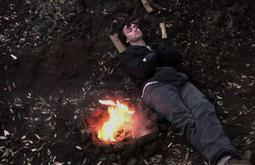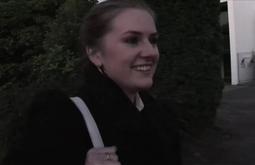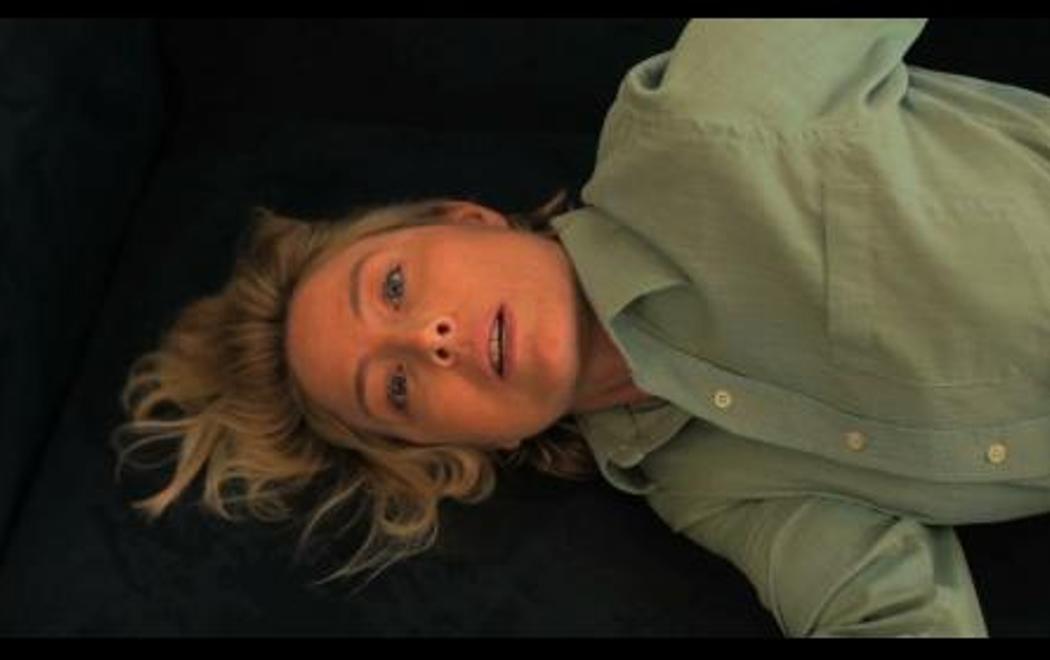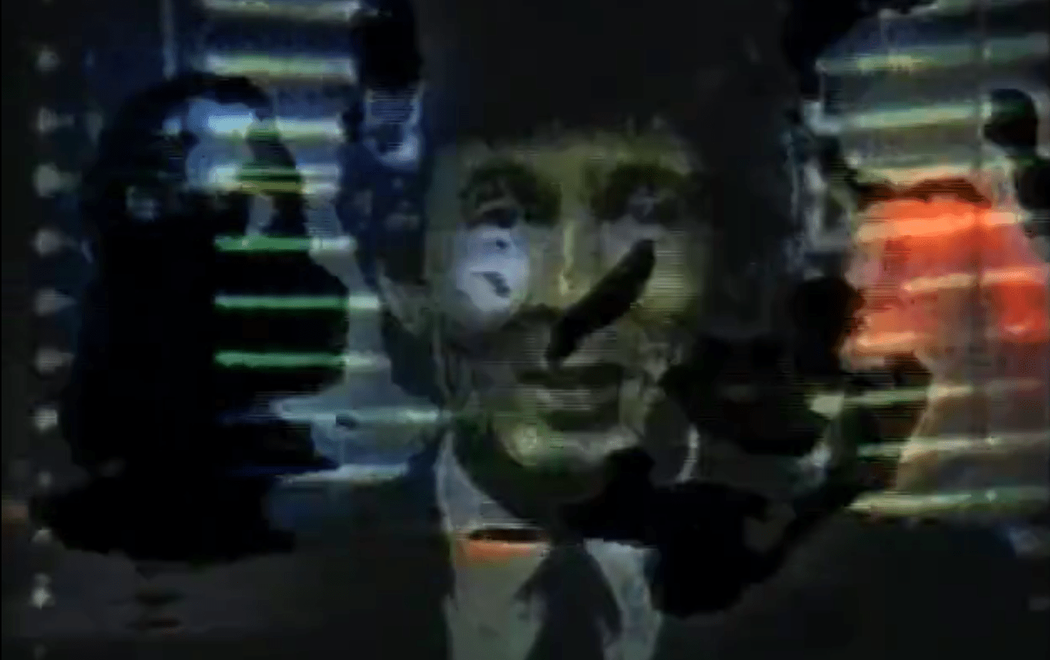"Ostensibly a horror movie, HADHAD is structured around the conventional storyline wherein a group of people who are ensconced somewhere on the outskirts of town encounter a mysterious and likely murderous intruder who severely disturbs their reality. In this case, the group are all dressed in matching beige pants and a complementary assortment of pastel shirts.
The action takes place in a generic example of Californian suburban architecture, nestled within a mountain forest setting, an idyllic but intimidating location for action that is slow to the point of being motionless, the actors standing perfectly still while they deliver their lines. Framed by a limited compositional palette, the performances emphasise the controlling absurdity of an obsessive use of labored, rational language, calling into question the humanity of the characters. Speaking in monotone, android-esque monologues, the members of the group discuss their activities in the house with observational dryness, as they wait for developments in artificial intelligence to fundamentally change the world.
Prophecies about advanced computing and AI liberating humans from the industrialised status quo can be traced back to California in the 1960s and 1970s. Engineers, programmers, and budding capitalists began promoting and working towards a future with a massively increased integration of human life with the digital and virtual, facilitated in large part through the development of personal computers. In wanting to naturalise the role of modern technology in society, academics and researchers mapped concepts of networking and gaming onto theories of human behaviour, ‘proving’ that computers and algorithms were an essential component of existence.
The so-called Californian ideology was a continuation of the historical power structure of Western rationalist thinking, merging universalist humanism with economic and political libertarianism; believers in the emancipatory power of computation deeply valued freedom of the self and free market enterprise. Explicitly concerned with next phase of evolution, the visionaries of Silicon Valley established a technological framework for expressing post-human ideas within the emerging ideology of neo-liberalism, and the continuing domination of ‘knowledge’ based societies.
In HADHAD, the authority the human-ish characters have over their environment becomes suffocating, where calm, intelligent discourse leaves no room for dissent, spontaneity or non-rational knowledge. Oppressively hermetic, the language heavy world of the cult-like household quickly unravels once the mysterious intruder arrives. Uncertain how to interact with or categorize the speechless entity, the group appears defenseless as their treasured rationality disintegrates by the mere presence of this powerful entity." - Artist Statement





